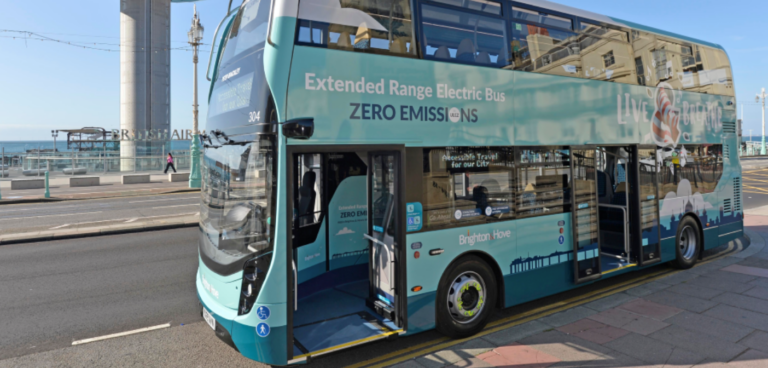The UK government has today (30 March) launched a multimillion-pound scheme to enable regional transport authorities to roll out zero-emission buses.
Up to £120m is being made available through the zero-emission-buses regional area (ZEBRA) scheme, which will allow local transport authorities to bid for funding to purchase up to 500 zero-emission buses as part of the government’s wider aim of introducing 4,000 such vehicles.
To ensure funding from the ZEBRA fund is used quickly to help provide British bus manufacturers with orders, the government has called on local transport authorities, energy companies, bus operators and manufacturers to work up cases for funding.
Bidders have until 21 May 2021 to submit expressions of interest for a fast-track process that will allow local transport authorities with well-developed proposals to move quickly in their bid to secure funding.
However, the government said it also wants all local authorities to have the opportunity to submit bids and, therefore, those who need more time to develop their proposals will have until 25 June 2021 to submit expressions of interest.
UK transport secretary Grant Shapps said: “The launch of the scheme today means we’re giving businesses and local authorities the tools to help deliver the 4,000 zero-emission buses we said we would introduce, which will dramatically improve air quality in towns and cities across the country, helping us achieve our net-zero ambitions.”
The funding comes from the wider £3bn fund announced by the government to improve bus services in its national bus strategy published on 15 March.
The national bus strategy contains several pledges to improve the environmental friendliness of the country’s bus sector and includes a consultation on the end date for sales of diesel buses, which was launched alongside the strategy.
Today’s announcement comes as Coventry recently received the first pot of funding from the all-electric bus towns and cities competition, giving the city £50m to replace its current fleet with electric buses.
It also comes after government announced over £30m of funding to support research into battery technology, the EV supply chain and hydrogen vehicles.
Some 22 studies will receive a share of £9.4m, including proposals to build a plant in Cornwall that will extract lithium for use in EV batteries; a plant to build specialised magnets for EV motors in Cheshire; and lightweight hydrogen storage for cars and vans in Loughborough.





